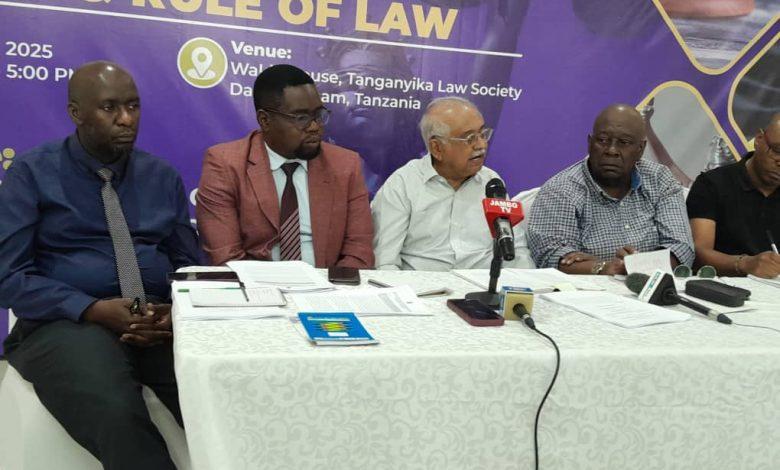Africa-Press – Tanzania. THE Tanzanian Court of Appeal has granted the Parliament 12 months to amend four sections of the Fundamental Rights and Duties Act enacted through the Miscellaneous Laws Amendment Act (No. 3) of 2020.
That was delivered yesterday in its decision on Appeal No. 134 of 2022 in a Constitutional case challenging restrictions on the opening of Public Interest Litigation.
The articles identified for amendment are sections 4(2), 4(3), 4(4), and 4(5) of the Fundamental Rights and Duties Act enacted through the Miscellaneous Laws Amendment Act (No. 3) of 2020.
The case was filed by a Human Rights defender, Advocate Onesmo Olengurumwa, against the Attorney General, where the appeal was heard by three judges of the Court of Appeal, namely Justice Levira, Justice Rumanyika and Justice Ngwembe.
The appellant was represented by a panel of lawyers led by Prof Issa Shivji, senior advocate Mpale Mpoki, Dr Rugemeleza Nshala, and Advocate John Sek, while the government was represented by the Attorney General, Hangi Chang’a and his panel.
The decision on the appeal was delivered yesterday online by the Deputy Registrar of the Court of Appeal, Honourable Joseph Fovo, where he explained that the Court of Appeal has invalidated sections 4(2), 4(3), 4(4), and 4(5) of the Enforcement of Fundamental Rights and Duties Act.
Speaking immediately after the decision, Olengurumwa said the Court has ruled that section 4(2) which imposes the requirement of attaching an affidavit to explain how a person who files a petition to the High Court regarding a violation of constitutional rights has personally been affected, removes the concept or meaning of a public interest litigation, therefore the section is invalid.
He said that, section 4(3) which requires a person wishing to file a public interest case to demonstrate personal interest as required by Article 30(3) of the Constitution is invalid because Article 26(2) which grants the right to file a public interest case is different from Article 30(3) which requires personal interest.
“That section 4(4) which imposes the obligation to prosecute the Attorney General on behalf of the President, Vice President, Prime Minister, Speaker, Deputy Speaker and Chief Justice, is invalid because he has his constitutional responsibilities and is not involved, for example, with the Chief Justice, therefore there is no legal basis for imposing that requirement.
“Section 4(5) which requires a person who wants to file a case must first seek relief from his complaint under other existing laws before filing a case under the Fundamental Rights and Duties Act, is invalid because there is no law that provides such relief in matters of public interest,” he said.
For his part, the Appellant’s lawyer, Prof Shivji, praised the Court of Appeal for issuing the decision that targets the interests of all citizens.
“I commend the panel of judges and the court for issuing the decision, but for a senior officer like me, I can do so because the decision has been a great comfort. I have taught many students, lawyers, both government and private, and judges, so when a decision like this is made, it gives me great comfort.
He added, “The judges have made a courageous decision, and the court is the last resort to protect the rights of citizens, the right to life, these laws were affecting the duty to defend the public.
On June 19, 2021, the Tanzanian government published in the Government Gazette the Miscellaneous Laws Amendment Act (No. 3) of 2020, which made significant changes to the Implementation of Fundamental Rights and Duties Act, where Olengurumwa filed a case in the High Court of Tanzania on February 15, 2022.
However, the High Court dismissed the case and said that the provisions were valid and did not contradict the Constitution or international human rights treaties.
For More News And Analysis About Tanzania Follow Africa-Press







